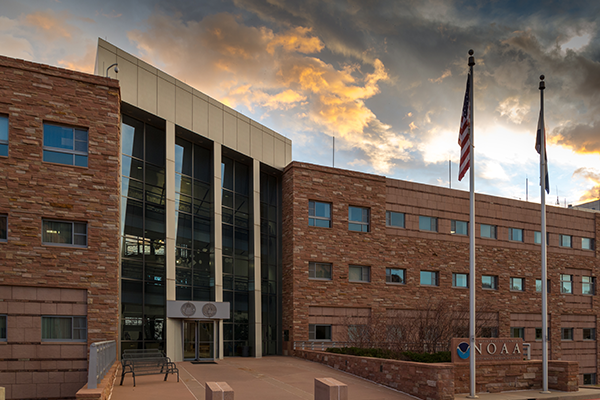
Melt onset at MOSAiC: Resiliency of the ice column to preconditioning by warming extremes
Christopher Cox
NOAA/PSL
Tuesday, May 23, 2023, 2:00 pm
DSRC Room 1D403
JOIN THE WEBINAR:
GoTo MeetingAbstract
The timing of melt onset affects the duration and total amount of seasonal melt. At MOSAiC, onset was at 83.3ºN on 25 May, triggered by prolonged enhanced longwave radiative forcing, consistent with the prevailing theory. Previous studies postulate that atmospheric warming events in the weeks prior to onset precondition the ice by accelerating the warming of the ice. We argue that this preconditioning potential is limited and that warming from individual events is a less important precursor to onset than the date of persistent positive atmospheric forcing. An extreme warming event due to southerly advection in mid-April was responsible for 40% of the total warming the ice underwent prior to onset. To assess preconditioning, we apply counterfactual forcing using a coupled regional model where the advection has been suppressed at the model boundary to a 1d finite-volume diffusion model representing the ice. We find that the energy change in the ice column relaxes to the unperturbed control with an e-folding time of just 7.2 days. The warming leads to a reduction in the temperature gradient within the ice column, which acts to suppress the future heating rate, constituting a negative feedback. Consequently, the net thermodynamic energy uptake within the ice in the factual and counterfactual forcings merge over time.
Seminar Contact: psl.seminars@noaa.gov